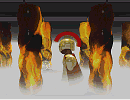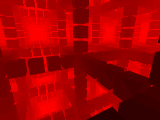- Entrance
-
Pathway Machine
Pathway Machine Menu
-
Pneuma
Pneuma Menu
Spirituality
Religion
Secularism
History
- History: 4000–3000 BCE
- History: 3000–2000 BCE
- History: 2000–1500 BCE
- History: 1500–1000 BCE
- History: 1000–600 BCE
- History: 600–300 BCE
- History: 300 BCE–1 CE
- History: 1-400 CE
- History: 400-800 CE
- History: 800-1200 CE
- History: 1200-1500 CE
- History: 1500-1800 CE
- History: 1800-2000 CE
- History: 2000-2025 CE
- History: Conclusion
- History: Technology
- History: Science
- History: Robotics/AI
- History: Energy
- Archive
- Exit
After the global revolution and prior to the great destruction much of the internet was preserved by the Ministry of Science and Technology (MoST). Sounds and visions from planet Earth were cherished on long excursions aboard Laurasia. Especially as a sleep aid, but also for entertainment. This - is ABBA.
Museum
Selections of art taken from Chris Lehrer's Lyceum under the heading: Window to the Past.
With Pride Upon Her Brow, by Edwin Austin Abbey: 1878
Radio Laurasia
Listen to Soma FM streaming radio, a favorite of the space station Laurasia since the global revolution. You may or may not have to download the free Winamp or Real audio player.









